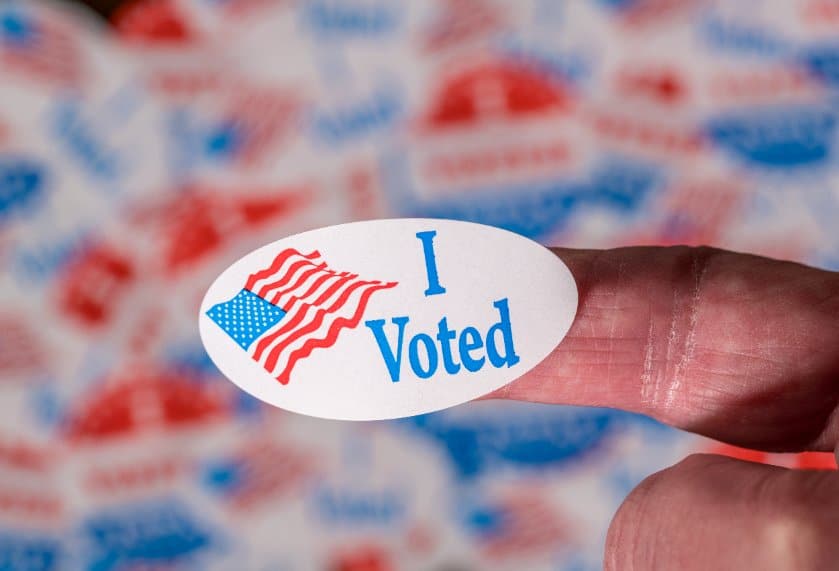
With just over fifty days before the 2022 midterm elections, politicians are making the traditional post-Labor Day push ahead of voting. President Joe Biden has been in Pennsylvania and Ohio in the last week. Many candidates are now participating in debates, and political ads are becoming more commonplace. 2022 has been a pivotal year in politics – Supreme Court decisions are propelling more voters than in the past due to the Dobbs decision in June 2022. However, multiple polls show that a majority of Americans are dissatisfied with the direction of the country for a variety of reasons.
Prior to Labor Day, Senate Minority Leader Mitch McConnell (R-KY) predicted that while he believed Republican candidates would take the House of Representatives in November, he was less confident about the state of the Senate. Citing “candidate quality,” McConnell said that the makeup of the Senate could really go either way and will likely remain a tight margin between the parties.
Certainly, the Democratic Party – which has a majority in the House of Representatives and a razor-thin majority in the Senate – would like to hold on to their majority. Democrats, to be frank, have come out on the campaign trail hard and fast. Democrats have made claims regarding the votes of their Republican colleagues, and they are touting their “wins” in the Congress, particularly the passage of the Inflation Reduction Act.
Candidates who want to win their races should pay attention to polls – and not the polls revealing which candidates voters like. Candidates must pay attention to polls in which voters say they believe the country is going in the wrong direction, any they must create policies which will address the issues plaguing all Americans.
To be certain, the Democratic Party is honing in on three particular areas – abortion, gun control, and student loan debt. However, the economy is one issue that is affecting all Americans across all socioeconomic classes. The surge in violent crime is another area in which candidates should focus, and inflation is also at the forefront of Americans’ minds.
Rasmussen polled a group of likely voters across the United States at the end of August, and they found that voters across all political spheres are concerned about (1) rising gas prices, (2) the economy, (3) violent crime, (4) energy policy, and (5) inflation.
Fuel prices hit a historic national average of $5 per gallon in June; since then, it has shrank back to $3.75 per gallon. However, this is still about $1.50 more than it was when Biden took office in January 2021. Most believe that fuel prices will remain high for the foreseeable future, with the price of a barrel of crude oil between $80 – $100. (That translates to $3 – $4 per gallon of gas.)
Rising gas prices tie in with energy policy. While many Americans understand that EVs are the future, with prices on everything from food to utilities rising sharply, consumers simply can’t see how they can afford to purchase an EV that is comparable to their current gas-powered vehicle. With winter 2022 – 2023 fast approaching, Americans are worrying that they won’t be able to pay for higher home heating fuel prices.
On that note, Americans in numerous polls say that their financial situation is getting worse. Various polls show that between 40 and 64 percent of Americans are in worse financial shape now than they were one year or two years ago.
That very fact could propel voters to the polls on November 8.
Federal spending is also a campaign topic that most citizens hear little of. Yet, it is federal spending that is contributing to at least part of inflation. Federal spending since January 2021 has increased by $5 Trillion.
Americans are also divided on the issue of student debt relief. The CBO as well as other non-profit financial entities have said that Biden’s executive order on student debt forgiveness will not only cancel any deficit reduction the IRA bill promised, but it saddles each American with about $6,000 in debt they never agreed to take on.
Citizens should research each candidate and go beyond what the candidate’s opponent says. Look at the voting records of candidates. Look at their campaign donors. Research sites such as Ballotpedia.org for voting records and policy. Then, make a decision based on your personal beliefs and your personal “kitchen table issues.”





